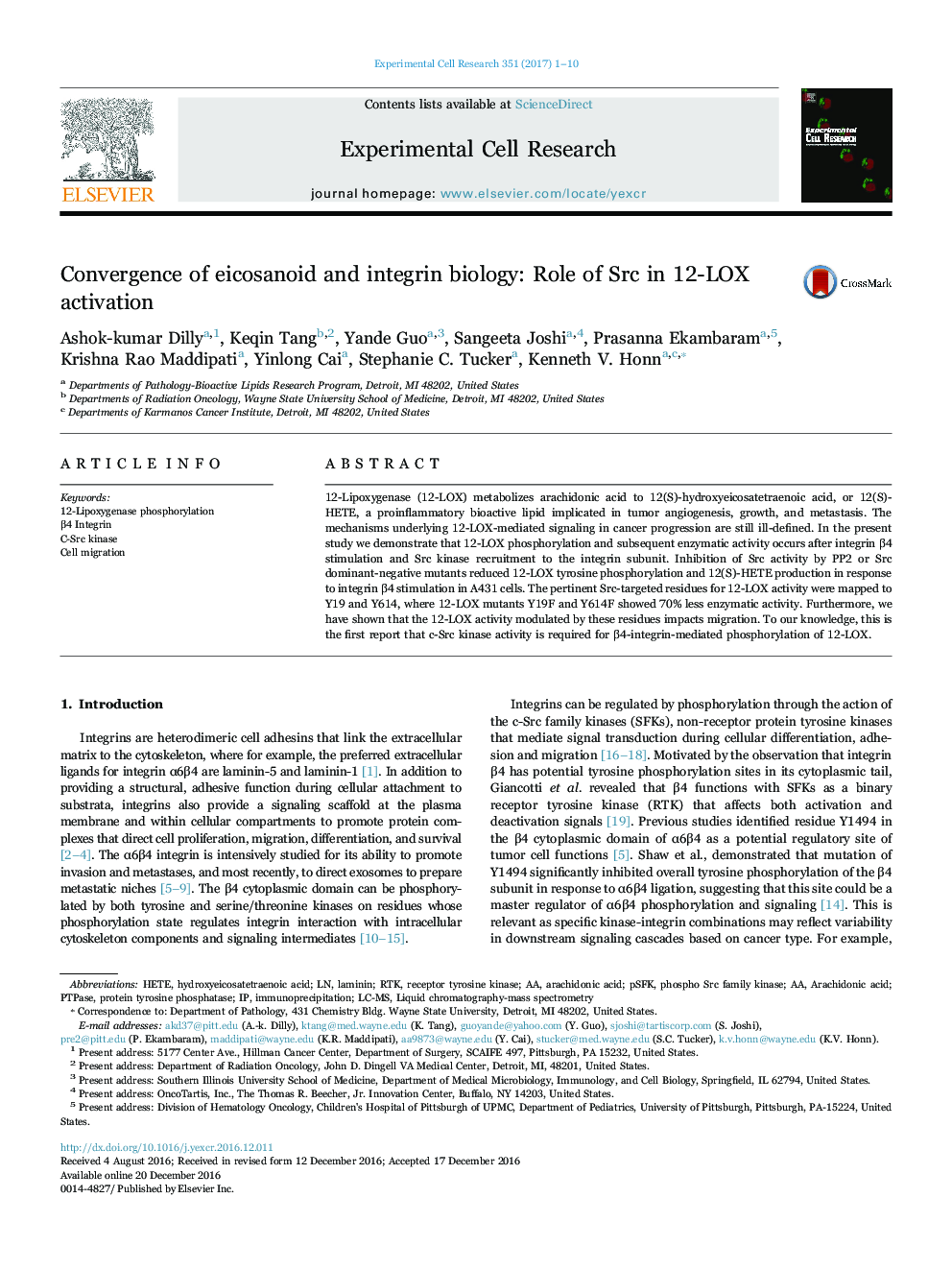| Article ID | Journal | Published Year | Pages | File Type |
|---|---|---|---|---|
| 5527242 | Experimental Cell Research | 2017 | 10 Pages |
â¢ITGB4 ligation in A431 cells regulates Src phosphorylation/activation.â¢12LOX enzymatic activity is increased by ITGB4-induced pSrc phosphorylation.â¢Tyrosine residues 19 and 614 in 12LOX are pSrc targets post ITGB4 ligation.â¢Phosphorylation state of 12LOX Y19 and Y614 influences cancer phenotypes.
12-Lipoxygenase (12-LOX) metabolizes arachidonic acid to 12(S)-hydroxyeicosatetraenoic acid, or 12(S)-HETE, a proinflammatory bioactive lipid implicated in tumor angiogenesis, growth, and metastasis. The mechanisms underlying 12-LOX-mediated signaling in cancer progression are still ill-defined. In the present study we demonstrate that 12-LOX phosphorylation and subsequent enzymatic activity occurs after integrin β4 stimulation and Src kinase recruitment to the integrin subunit. Inhibition of Src activity by PP2 or Src dominant-negative mutants reduced 12-LOX tyrosine phosphorylation and 12(S)-HETE production in response to integrin β4 stimulation in A431 cells. The pertinent Src-targeted residues for 12-LOX activity were mapped to Y19 and Y614, where 12-LOX mutants Y19F and Y614F showed 70% less enzymatic activity. Furthermore, we have shown that the 12-LOX activity modulated by these residues impacts migration. To our knowledge, this is the first report that c-Src kinase activity is required for β4-integrin-mediated phosphorylation of 12-LOX.
Graphical abstractDownload high-res image (147KB)Download full-size image
